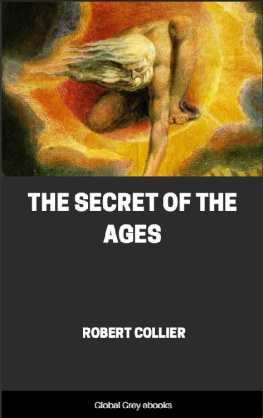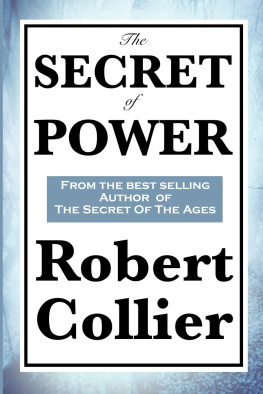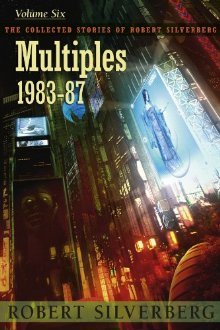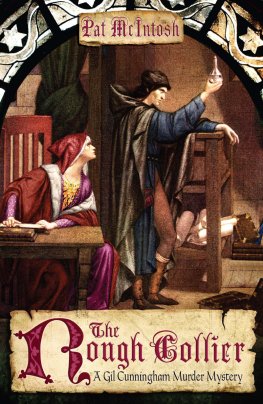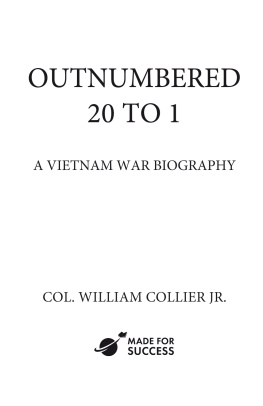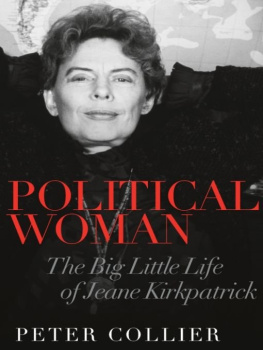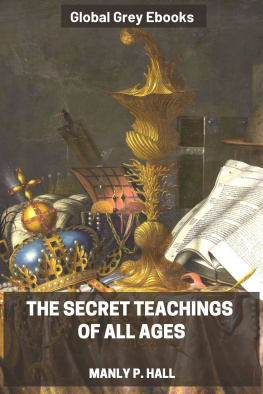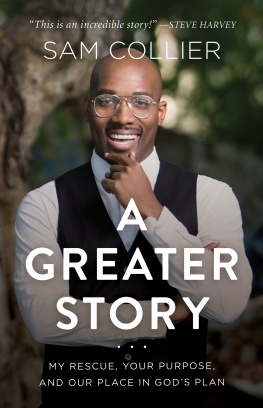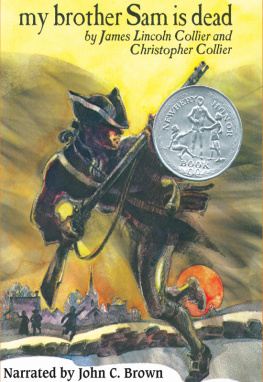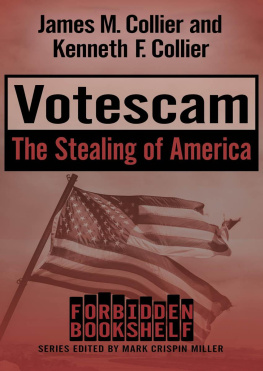Robert Collier - The Secret of the Ages
Here you can read online Robert Collier - The Secret of the Ages full text of the book (entire story) in english for free. Download pdf and epub, get meaning, cover and reviews about this ebook. year: 2013, publisher: Rough Draft Printing (first published 1926), genre: Religion. Description of the work, (preface) as well as reviews are available. Best literature library LitArk.com created for fans of good reading and offers a wide selection of genres:
Romance novel
Science fiction
Adventure
Detective
Science
History
Home and family
Prose
Art
Politics
Computer
Non-fiction
Religion
Business
Children
Humor
Choose a favorite category and find really read worthwhile books. Enjoy immersion in the world of imagination, feel the emotions of the characters or learn something new for yourself, make an fascinating discovery.
- Book:The Secret of the Ages
- Author:
- Publisher:Rough Draft Printing (first published 1926)
- Genre:
- Year:2013
- Rating:4 / 5
- Favourites:Add to favourites
- Your mark:
- 80
- 1
- 2
- 3
- 4
- 5
The Secret of the Ages: summary, description and annotation
We offer to read an annotation, description, summary or preface (depends on what the author of the book "The Secret of the Ages" wrote himself). If you haven't found the necessary information about the book — write in the comments, we will try to find it.
The Secret of the Ages — read online for free the complete book (whole text) full work
Below is the text of the book, divided by pages. System saving the place of the last page read, allows you to conveniently read the book "The Secret of the Ages" online for free, without having to search again every time where you left off. Put a bookmark, and you can go to the page where you finished reading at any time.
Font size:
Interval:
Bookmark:
THE SECRET
OF THE AGES
BY
ROBERT COLLIER
COMPLETE SEVEN VOLUMES
1926
The Secret of the Ages By Robert Collier.
This edition was created and published by Global Grey
GlobalGrey 2018

globalgreyebooks.com
"A fire-mist and a planet,
A crystal and a cell,
A jelly-fish and a saurian,
cave where the cave-men dwell;
Then a sense of law and order,
A face upturned from the clod;
Some call it Evolution, And others call it God."
Reprinted from
The New England Journal.
If you had more money than time, more millions than you knew how to spend, what would be your pet philanthropy? Libraries? Hospitals? Churches? Homes for the Blind, Crippled or Aged?
Mine would be "Homes"but not for the aged or infirm. For young married couples!
I have often thought that, if ever I got into the "Philanthropic Billionaire" class, I'd like to start an Endowment Fund for helping young married couples over the rough spots in those first and second years of married lifeespecially the second year, when the real troubles come.
Take a boy and a girl and a cozy little nestadd a cunning, healthy babyand there's nothing happier on God's green footstool.
But instead of a healthy babe, fill in a fretful, sickly babya wan, tired, worn-out little mothera worried, dejected, heart-sick fatherand there's nothing more pitiful.
A nurse for a month, a few weeks at the shore or mountains, a "lift" on that heavy Doctor's billany one of these things would spell H-E-A-V-E-N to that tiny family. But do they get it? Not often! And the reason? Because they are not poor enough for charity. They are not rich enough to afford it themselves. They belong to that great "Middle Class" which has to bear the burdens of both the poor and the richand take what is left for itself.
It is to them that I should like to dedicate this book. If I cannot endow Libraries or Colleges for them, perhaps I can point the way to get all good gifts for themselves.
For men and women like them do not need "charity"nor even sympathy. What they do need is Inspirationand Opportunitythe kind of Inspiration that makes a man go out and create his own Opportunity.
And that, after all, is the greatest good one can do anyone. Few people appreciate free gifts. They are like the man whom an admiring townsfolk presented with a watch. He looked it over critically for a minute. Then"Where's the chain?" he asked.
But a way to win for themselves the full measure of success they've dreamed of but almost stopped hoping forthat is something every young couple would welcome with open arms. And it is something that, if I can do it justice, will make the "Eternal Triangle" as rare as it is today common, for it will enable husband and wife to work togethernot merely for domestic happiness, but for business success as well.
Robert Collier.
"You can do as much as you think you can,
But you'll never accomplish more;
If you're afraid of yourself, young man,
There's little for you in store.
For failure comes from the inside first,
It's there if we only knew it,
And you can win, though you face the worst,
If you feel that you're going to do it."
EDGAR A. GUEST.
What, in your opinion, is the most significant discovery of this modern age?
The finding of Dinosaur eggs on the plains of Mongolia, laidso scientists assertsome 10,000,000 years ago?
The unearthing of the Tomb of Tut-ankh-Amen, with its matchless specimens of a bygone civilization?
The radio-active time clock by which Professor Lane of Tufts College estimates the age of the earth at 1,250,000,000 years?
Wireless? The Aeroplane? Man-made thunderbolts?
Nonot any of these. The really significant thing about them is that from all this vast research, from the study of all these bygone ages, men are for the first time beginning to get an understanding of that "Life Principle" whichsomehow, some waywas brought to this earth thousands or millions of years ago. They are beginning to get an inkling of the infinite power it puts in their handsto glimpse the untold possibilities it opens up.
This is the greatest discovery of modern timesthat every man can call upon this "Life Principle" at will, that it is as much the servant of his mind as was ever Aladdin's fabled "Genie-of-the-lamp" of old; that he has but to understand it and work in harmony with it to get from it anything he may needhealth or happiness, riches or success.
To realize the truth of this, you have but to go back for a moment to the beginning of things.
In the Beginning
It matters not whether you believe that mankind dates back to the primitive Ape-man of 500,000 years ago, or sprang full-grown from the mind of the Creator. In either event, there had to be a First Causea Creator. Some Power had to bring to this earth the first germ of Life, and the creation is no less wonderful if it started with the lowliest form of plant life and worked up through countless ages into the highest product of today's civilization, than if the whole were created in six days.
In the beginning, this earth was just a fire mistsix thousand or a billion years agowhat does it matter which?
The one thing that does matter is that some time, some way, there came to this planet the germ of Lifethe Life Principle which animates all Natureplant, animal, man. If we accept the scientists version of it, the first form in which Life appeared upon earth was the humble Alga jelly-like mass which floated upon the waters. This, according to the scientists, was the beginning, the dawn of life upon the earth.
Next came the first bit of animal lifethe lowly Amoeba, a sort of jelly fish, consisting of a single cell, without vertebr, and with very little else to distinguish it from the water round about. But it had lifethe first bit of animal lifeand from that life, according to the scientists, we can trace everything we have and are today.
All the millions of forms and shapes and varieties of plants and animals that have since appeared are but different manifestations of lifeformed to meet differing conditions. For millions of years this "Life Germ" was threatened by every kind of dangerfrom floods, from earthquakes, from droughts, from desert heat, from glacial cold, from volcanic eruptionsbut to it each new danger was merely an incentive to finding a new resource, to putting forth Life in some new shape.
To meet one set of needs, it formed the Dinosaurto meet another, the Butterfly. Long before it worked up to man, we see its unlimited resourcefulness shown in a thousand ways. To escape danger in the water, it sought land. Pursued on land, it took to the air. To breathe in the sea, it developed gills. Stranded on land, it perfected lungs. To meet one kind of danger it grew a shell. For another, a sting. To protect itself from glacial cold, it grew fur. In temperate climes, hair. Subject to alternate heat and cold, it produced feathers. But ever, from the beginning, it showed its power to meet every changing condition, to answer every creature need.
Had it been possible to kill this "Life Idea," it would have perished ages ago, when fire and flood, drought and famine followed each other in quick succession. But obstacles, misfortunes, cataclysms, were to it merely new opportunities to assert its power. In fact, it required obstacles to awaken it, to show its energy and resource.
The great reptiles, the monster beasts of antiquity, passed on. But the "Life Principle" stayed, changing as each age changed, always developing, always improving.
Next pageFont size:
Interval:
Bookmark:
Similar books «The Secret of the Ages»
Look at similar books to The Secret of the Ages. We have selected literature similar in name and meaning in the hope of providing readers with more options to find new, interesting, not yet read works.
Discussion, reviews of the book The Secret of the Ages and just readers' own opinions. Leave your comments, write what you think about the work, its meaning or the main characters. Specify what exactly you liked and what you didn't like, and why you think so.

